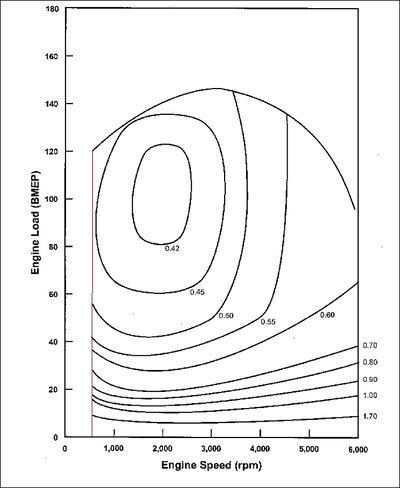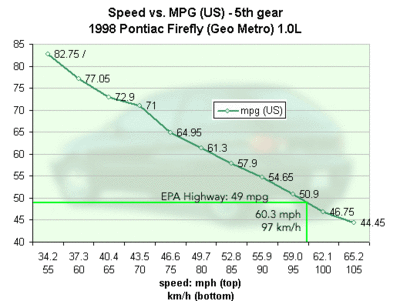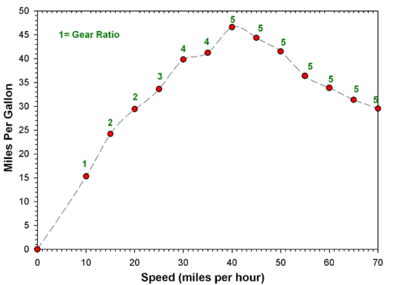Brake specific fuel consumption
Jump to navigation
Jump to search
Brake specific fuel consumption (BSFC) is a measure of the efficiency of an internal combustion engine. The term "specific fuel consumption" refers to the amount of fuel used normalized to the amount of power generated, which gives you an efficiency at at certain operating point of the engine. The term "brake" refers to how the power is measured: a brake is attached to the output of the engine for this measurement.
Understanding what operating conditions are necessary to minimize BSFC will improve fuel efficiency when designing systems to use internal combustion engines, or operating vehicles and equipment. Typically this is most critical when driving an automobile.
Here are key takeaways to be aware of:
- Maximum efficiency, for gasoline engines, is when the throttle is completely open (engine is under 100% load). The reason is that the engine must suck air past the throttle plate, in which case it is acting like a vacuum pump.
- Following the point above, to achieve maximum mpg when driving, it pretty much boils down to "be in the highest gear possible at the lowest speed possible". Being in a higher gear causes the throttle to be open more generally. At high speeds engine friction and air drag reduce efficiency.



